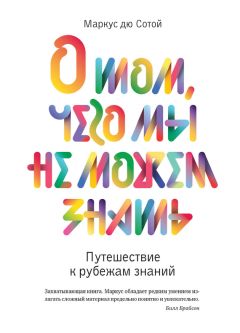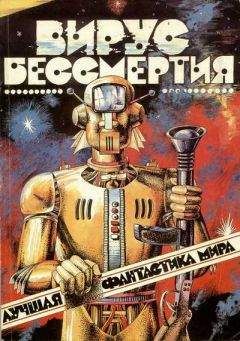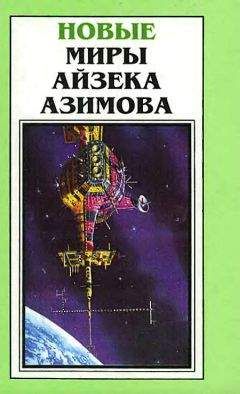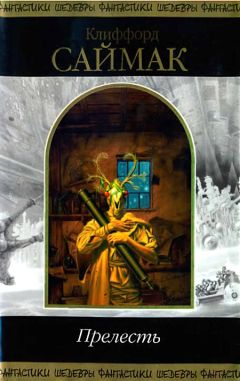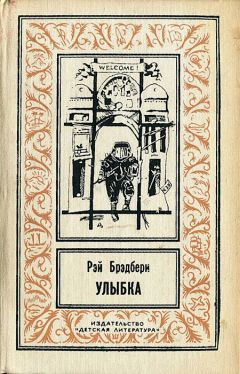С. 86. Фрактальное дерево эволюции. Иллюстрация создана на основе изображений, генерируемых программой One Zoom Tree of Life Explorer: http://www.onezoom.org/index.htm.
С. 92. Магнитные поля © Joe McLaren.
С. 96. Четыре графика, иллюстрирующие поведение игральной кости. Созданы на основе материалов статьи M. Kapitaniak, J. Strzalko, J. Grabski and T. Kapitaniak. The three-dimensional dynamics of the die throw // Chaos 22 (4), 2012: 047504.
Рубеж второй
С. 124. Атомы внутри игральной кости. Yikrazuul / Wikimedia Commons / Общественное достояние.
С. 127. Жан Батист Перрен, «Атомы» (автор рисунка в формате SVG – MiraiWarren) / Общественное достояние.
Рубеж третий
С. 217. График перепечатан с разрешения Американского физического общества из статьи C. G. Shull. Single-Slit Diffraction of Neutrons // Physical Review 179, 1969: 752. © 1969 by the American Physical Society: http://dx.doi.org/10.1103/PhysRev.179.752.
Рубеж пятый
С. 372. Энтропия. Иллюстрация создана на основе иллюстрации из книги Penrose Roger. The Emperor’s New Mind: Concerning Computers, Minds, and the Laws of Physics. OUP, 1989.
С. 380. Схема конформной циклической космологии (ССС). © Roger Penrose. Cycles of Time: An Extraordinary New View of the Universe. Bodley Head, 2010.
Рубеж шестой
С. 404. Нейрон. Воспроизводится с любезного разрешения Сантьяго Рамона-и-Кахаля, Cajal Legacy, Instituto Cajal, Мадрид.
С. 430. «Чистота». Рэндел Манро, xkcd.com: http://xkcd.com/435/.
С. 442. Бодрствование и глубокий сон. Иллюстрация создана на основе материалов статьи: Marcello Massimini, Fabio Ferrarelli, Reto Huber, Steve K. Esser, Harpreet Singh, Giulio Tononi. Breakdown of Cortical Effective Connectivity During Sleep // Science 309, 2005: 2228–2232.
С. 446. Две схемы сетей с 8 узлами. Воспроизводится с любезного разрешения авторов. Giulio Tononi and Olaf Sporns. Measuring information integration // BMC Neuroscience 4, 2003.
Автором и издателем были приняты все меры для установления владельцев изображений и других материалов, используемых в этой книге. Если не установленные до сих пор владельцы свяжутся с автором или издателем после публикации этой книги, автор и издатель приложат все усилия для исправления данного положения.
Al-Khalili Jim. Quantum: A Guide for the Perplexed. Weidenfeld & Nicolson, 2003.
Armstrong Karen. A Short History of Myth. Canongate, 2005.
Armstrong Karen. The Great Transformation: The World in the Time of Buddha, Socrates, Confucius and Jeremiah. Atlantic Books, 2006.
Armstrong Karen. The Case for God. Bodley Head, 2009.
Ayer A. J. Language, Truth and Logic. Victor Gollancz, 1936.
Ayer A. J. The Problem of Knowledge. Penguin Books, 1956.
Baggini Julian. Atheism: A Very Short Introduction. Oxford University Press, 2003.
Baggott Jim. Farewell to Reality: How Fairytale Physics Betrays the Search for Scientific Truth. Constable, 2013.
Barbour Julian. The End of Time: The Next Revolution in Physics. Oxford University Press, 1999.
Barrow John. Impossibility: The Limits of Science and the Science of Limits. Oxford University Press, 1998.
Barrow John. The Constants of Nature. Jonathan Cape, 2002.
Barrow-Green June. Poincare and the Three-Body Problem. American Mathematical Society, 1997.
Bayne Tim. The Unity of Consciousness. Oxford University Press, 2010.
Blackburn Simon. Truth: A Guide for the Perplexed. Allen Lane, 2005.
Blackmore Susan. Consciousness: An Introduction. Hodder & Stoughton, 2003.
Blackmore Susan. Conversations on Consciousness. Oxford University Press, 2005.
Bondi Hermann. Relativity and Common Sense: A New Approach to Einstein. Doubleday, 1964.
Borges Jorge Luis. Labyrinths: Selected Stories and Other Writings. New Directions, 1962.
Butterworth Jon. Smashing Physics: Inside the World’s Biggest Experiment. Headline, 2014.
Carroll Sean. From Eternity to Here: The Quest for the Ultimate Theory of Time. Oneworld Publications, 2011.
Close Frank. Particle Physics: A Very Short Introduction. Oxford University Press, 2004.
Close Frank. The Infinity Puzzle: Quantum Field Theory and the Hunt for an Orderly Universe. Oxford University Press, 2013.
Conlon Joseph. Why String Theory? CRC Press, 2016.
Cox Brian and Forshaw Jeff. Why Does E = mc2? (And Why Should We Care?). Da Capo Press, 2009.
Dawkins Richard. The Blind Watchmaker. Longman, 1986.
Dawkins Richard. The God Delusion. Bantam Press, 2006.
Dennett Daniel. Consciousness Explained. Little, Brown, 1991.
Deutsch David. The Fabric of Reality. Allen Lane, 1997.
Dixon Thomas. Science and Religion: A Very Short Introduction. Oxford University Press, 2008.
du Sautoy Marcus. The Music of the Primes. Fourth Estate, 2003.
du Sautoy Marcus. Finding Moonshine. Fourth Estate, 2008.
du Sautoy Marcus. The Number Mysteries. Fourth Estate, 2010.
Edelman Gerald and Tononi Giulio. A Universe of Consciousness: How Matter Becomes Imagination. Basic Books, 2000.
Ferreira Pedro. The State of the Universe. A Primer in Modern Cosmology. Weidenfeld & Nicolson, 2006.
Ferreira Pedro. The Perfect Theory: A Century of Geniuses and the Battle over General Relativity. Little, Brown, 2014.
Feynman Richard. The Feynman Lectures on Physics. Addison-Wesley, 1964. Доступна в Сети: http://feynmanlectures.caltech.edu/
Gamow George. Mr Tompkins in Paperback. Cambridge University Press, 1965.
Gleick James. Chaos: The Amazing Science of the Unpredictable. Heinemann, 1988.
Goldstein Rebecca. 36 Arguments for the Existence of God. Atlantic Books, 2010.
Greene Brian. The Elegant Universe: Superstrings, Hidden Dimensions, and the Quest for the Ultimate Theory. W. W. Norton, 1999.
Greene Brian. The Fabric of the Cosmos. Knopf, 2004.
Greene Brian. The Hidden Reality: Parallel Universes and the Deep Laws of the Cosmos. Knopf, 2011.
Guth Alan. The Inflationary Universe: The Quest for a New Theory of Cosmic Origins. Addison-Wesley, 1997.
Hawking Stephen. A Brief History of Time: From the Big Bang to Black Holes. Bantam, 1988.
Kaku Michio. Hyperspace: A Scientific Odyssey Through the 10th Dimension. Oxford University Press, 1994.
Kapitaniak M., Strzalko J., Grabski J., and Kapitaniak T. The three-dimensional dynamics of the die throw // Chaos 22(4), 2012.
Koch Christof. The Quest for Consciousness: A Neurobiological Approach. Roberts & Company, 2004.
Koch Christof. Consciousness: Confessions of a Romantic Reductionist. MIT Press, 2012.
Krauss Lawrence. A Universe from Nothing: Why There Is Something Rather Than Nothing. Free Press, 2012.
Kurzwell Ray. The Singularity Is Near: When Humans Transcend Biology. Viking, 2005.
Kurzwell Ray. How to Create a Mind: The Secrets of Human Thought Revealed. Viking, 2012.
Lakatos Imre. Proofs and Refutations: The Logic of Mathematical Discovery. Cambridge University Press, 1976.
Laskar Jacques and Gastineau Mickaël. Existence of collisional trajectories of Mercury, Mars and Venus with the Earth // Nature 459, 817–819, 2009.
Levin Janna. How the Universe Got Its Spots: Diary of a Finite Time in a Finite Space. Princeton University Press, 2002.
Lightman Alan. Einstein’s Dreams. First Warner Books, 1994.
Livio Mario. The Accelerating Universe: Infinite Expansion, the Cosmological Constant and the Beauty of the Cosmos. John Wiley & Sons, 2000.
Maddox John. What Remains to be Discovered: Mapping the Secrets of the Universe, the Origins of Life and the Future of the Human Race. Free Press, 1998.
May Robert M. Simple mathematical models with very complicated dynamics // Nature 261, 459–467, 1976.
McCabe Herbert. God Still Matters. Continuum Books, 2002.
Monk Ray. Ludwig Wittgenstein: The Duty of Genius. Jonathan Cape, 1990.
Mulhall Stephen. Wittgenstein’s Private Language: Grammar, Nonsense and Imagination in Philosophical Investigations, 243–315. Clarendon Press, 2006.
Mulhall Stephen. The Great Riddle: Wittgenstein and Nonsense, Theology and Philosophy. Oxford University Press, 2015.
Nagel Jennifer. Knowledge: A Very Short Introduction. Oxford University Press, 2014.
Poincare Henri. Science and Method. Thomas Nelson, 1914.
Polkinghorne John. Belief in God in an Age of Science. Yale University Press, 1998.
Polkinghorne John. Quantum Theory: A Very Short Introduction. Oxford University Press, 2002.
Polkinghorne John. Quantum Physics and Theology: An Unexpected Kinship. SPCK, 2007.
Penrose Roger. The Emperor’s New Mind: Concerning Computers, Minds, and the Laws of Physics. Oxford University Press, 1989.
Penrose Roger. The Road to Reality: A Complete Guide to the Laws of the Universe. Jonathan Cape, 2004.
Penrose Roger. Cycles of Time: An Extraordinary New View of the Universe. Bodley Head, 2010.
Peterson Ivars. Newton’s Clock: Chaos in the Solar System. Freeman, 1993.
Ramachandran V. S. A Brief Tour of Human Consciousness: From Impostor Poodles to Purple Numbers. Pi Press, 2004.
Randall Lisa. Knocking on Heaven’s Door: How Physics and Scientific Thinking Illuminate the Universe and the Modern World. Bodley Head, 2011.
Rees Martin. Just Six Numbers: The Deep Forces that Shape the Universe. Weidenfeld & Nicolson, 1999.
Rees Martin. From Here to Infinity: Scientific Horizons. Profile Books, 2011.
Saari Donald and Xia Zhihong. Off to infinity in finite time // Notices of the American Mathematical Society. Vol. 42, № 5, 538–546, 1995.
Sacks Jonathan. The Great Partnership: God, Science and the Search for Meaning. Hodder & Stoughton, 2011.
Sample Ian. Massive: The Hunt for the God Particle. Virgin Books, 2010.
Seung Sebastian. Connectome: How the Brain’s Wiring Makes Us Who We Are. Houghton Mifflin Harcourt, 2012.
Silk Joseph. The Infinite Cosmos: Questions from the Frontiers of Cosmology. Oxford University Press, 2006.
Singh Simon. Fermat’s Last Theorem. Fourth Estate, 1997.
Singh Simon. Big Bang: The Most Important Scientific Discovery of All Time and Why You Need to Know About It. Fourth Estate, 2004.
Smolin Lee. Time Reborn: From the Crisis of Physics to the Future of the Universe. Allen Lane, 2013.
Steane Andrew. The Wonderful World of Relativity: A Precise Guide for the General Reader. Oxford University Press, 2011.
Steane Andrew. Faithful to Science: The Role of Science in Religion. Oxford University Press, 2014.
Stewart Ian. Does God Play Dice? The New Mathematics of Chaos. Basil Blackwell, 1989.
Stoppard Tom. Arcadia. Faber & Faber, 1993.
Sudbery Anthony. Quantum Mechanics and the Particles of Nature: An Outline for Mathematicians. Cambridge University Press, 1986.
Taleb Nassim. The Black Swan: The Impact of the Highly Improbable. Allen Lane, 2007.
Tegmark Max. The Mathematical Universe, Found. Phys. 38: 101–150, 2008.
Tegmark Max. Our Mathematical Universe: My Quest for the Ultimate Nature of Reality. Knopf, 2014.
Tononi Giulio and Sporns Olaf. Measuring information integration // BMC Neuroscience 4, 2003.
Tononi Giulio. Consciousness as Integrated Information: A Provisional Manifesto // Biol. Bull. Vol. 215, № 3: 216–242, 2008.
Tononi Giulio Phi. A Voyage from the Brain to the Soul. Pantheon, 2012.
Watts Fraser and Knight Christopher (eds). God and the Scientist: Exploring the Work of John Polkinghorne. Ashgate Publishing Limited, 2012.
Weinberg Steven. Dreams of a Final Theory: The Search for the Fundamental Laws of Nature. Hutchinson Radius, 1993.
Williamson Timothy. Knowledge and its Limits. Oxford University Press, 2000.
Woit Peter. Not Even Wrong: The Failure of String Theory and the Continuing Challenges to Unify the Laws of Physics. Jonathan Cape, 2006.
Yourgrau Palle. A World Without Time: The Forgotten Legacy of Godel and Einstein. Basic Books, 2005.
